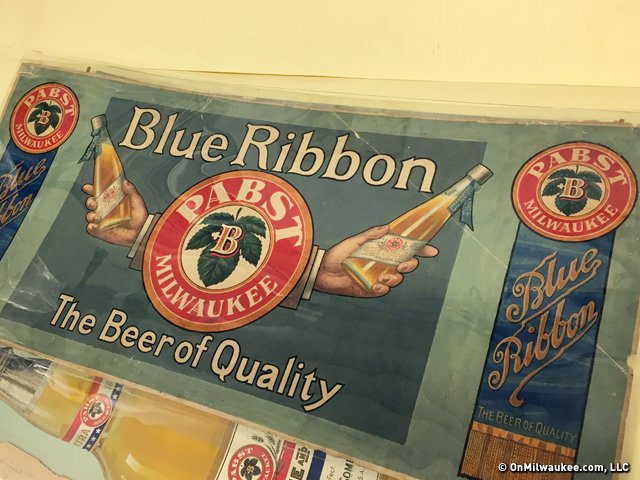We're all connected 24/7 to computers, tablets, phones and television. But there's more to life than being online – even for a digital media company – so this week we're excited to show you ways to connect with family and friends, even when there's no signal. Steinhafels presents OnMilwaukee Unplugged Week, a celebration of all things analog. Sit back, log into these stories and then log into the real world.
Christopher Porterfield and Charles K. Harris may both be musical Milwaukeeans, but that would seem to be one of the rare common threads between the two as they join forces for Alverno Presents’ latest concert. After all, the music makers not only stand on opposite sides of the century, but also seemingly on opposite sides of music philosophy.
As the frontman for the local band Field Report, Porterfield comes from the independent, more art-focused side of music. On the complete other hand, there is the songwriter Harris, who was all about the business side of music at the turn of the 20th century, serving as one of the first people in the nation to own his own publishing – and "a proto-music biz sort of shady guy," according to Porterfield.
"Everybody knew him as the guy who would show up everywhere and try to convince people to buy his songs and play his songs," Porterfield noted. "He would go to concerts and try to get these touring artists to perform one of his songs, and he ended up occasionally posing as a journalist and swap potentially good reviews in the paper the next day if somebody would do his tune.
"Harris, in his own way, was like a MySpace guy, trying to get his brand out there at the cost of any sort of artistic credibility," he added. "He’s the guy on Instragram who’s got a good filter he looks good in, and he’s putting it out there with links to his SoundCloud page. He just wanted to make more and more noise, so it became unavoidable."
And Harris the early Milwaukee music hustler eventually did become unavoidable. When he finally did get some singers to perform his tunes – like his big success, "After The Ball" – a few of them turned into early music industry hits, which Harris then evolved into a very profitable publishing empire. He would eventually grow his brand into a national success, in the process helping to establish Tin Pan Alley and writing a handbook for aspiring songwriters called – fittingly – "How to Write a Popular Song."
That book is why, more than a century after he became an early pop music hitmaker and over 85 years after his death in New York City in 1930, Harris and his work are returning to the Milwaukee stage Saturday night, matched up and brought to life, with the unlikely advocacy of Porterfield, for an Alverno Presents concert event hosted at Pitman Theatre.
"The point is to take a look at some of his original work, reimagine it and contextualize it historically and musically, and then also generate new work through the lens of this book," Porterfield explained. "It’s exploring this guy with deep Milwaukee roots that a lot of us don’t know about."
Joining Porterfield on his Harris-led quest through both music and Milwaukee history is an all-star cast of performers, including Phil Koch, Monica Martin of the Madison indie band PHOX, New York-based songwriter Dave Godowsky, his fellow Field Report members Shane Leonard and Tom Wincek, Nashville-based singer-songwriter Caitlin Canty and Ryan Necci of the band Buffalo Gospel. Each one will help transform Harris’ original songs and use his century-old book of advice to create all new "popular songs" of their own.
"We’re all just going to do what they did back then: just be in a room together and play songs together and support each other," Porterfield said. "It’ll be sort of a little parlor on stage at the Pitman – all responding to these 100-year-old ideas from Harris."
But why would such a gathering of independent-minded artists be interested in the aged tips and tricks of a hardcore business-first populist, one of the earliest ancestors to the seemingly polar opposite side of music? Porterfield admits the two work and aim for very opposite sides of the "art-commerce dance" of the industry, but for him, Harris’ legacy in music is much more interesting than simply his songs and brand. For one, Harris was among the early champions of copyright law and royalties, helping establish many of those systems still in effect today – albeit getting tested by new technology – and even serving as the first president of the American Society of Composers, Authors and Publishers (ASCAP).
Plus, for Porterfield, spending some time with Harris’ work gives him an opportunity to view a different perspective and a different era of music, one before our hyper-plugged-in and hyper-pop-culture-aware time where the mere concept of mass popular culture was stretching out to newer, broader places.
"It was before Top 40; it was before pop music, really, even," Porterfield said. "They’re similar words, but we’re really talking about different things. His idea of a popular song was just really that: just something a lot of people would like. There wasn’t really a means of distribution for such a large volume and range of work for people to interact with and inject themselves into. It was just basically what was going on in concert halls. Back then, this was actually the beginning of breaking up that monoculture and switching into a different monoculture. It’s similar to Gutenberg and the printing press, taking scripture out of the pulpit and bringing it to people’s living rooms.
"So it’s been interesting to peak into the corner of the form that I work in that’s not a one-dimensional form – it’s got a lot of shapes and crags and angles – and find a corner of that that I hadn’t really thought of before," he added.
A corner that isn’t as outdated as one might think. Despite being written over 100 years ago, Porterfield noted that some of the central ideas and tips in "How to Write a Popular Song" still hold up, such as capitalizing on sentiment and trafficking in universal, familiar ideas and words. When asked what his tips for writing a pop song would be, Porterfield even deferred to a fable from Harris’ experience.
"When he was first starting his career, he wrote this tune that was five verses long and had a big punchline reveal at the end of the fifth verse," Porterfield recalled. "He asked his buddy, who was a tailor, to premiere the song at a concert in Milwaukee, and by the time he got to the third verse, the guy forgot all the words. Later, he realized that people don’t really have the attention or the desire to learn five verses of words, so two verses, a strong chorus and out. And I think that probably still holds true today."
It would seem, even decades later, Harris’ insights still influence the music world today – almost as much as his hustle.
As much as it is a gigantic cliché to say that one has always had a passion for film, Matt Mueller has always had a passion for film. Whether it was bringing in the latest movie reviews for his first grade show-and-tell or writing film reviews for the St. Norbert College Times as a high school student, Matt is way too obsessed with movies for his own good.
When he's not writing about the latest blockbuster or talking much too glowingly about "Piranha 3D," Matt can probably be found watching literally any sport (minus cricket) or working at - get this - a local movie theater. Or watching a movie. Yeah, he's probably watching a movie.






